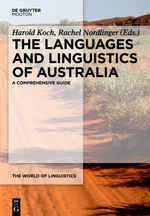A recap of last night’s Melbourne Linguistics in the Pub, by Kellen Parker van Dam (La Trobe University).
The topic of MLIP was ‘Language in education in multilingual contexts: beyond ‘mother tongue’ education’ and the discussion was led by Felix Ameka (Leiden University).
Topic and description as posed by Felix Ameka in the original MLIP announcement:
Linguists promote the benefits of “mother-tongue” education, especially in the first years of primary education. Linguistic human rights advocates argue that if a child is not taught in their first language, then the child’s basic linguistic human rights are violated (e.g. Babaci-Wilhite 2014). However the notion of the ‘mother tongue’ is inappropriate in highly multilingual contexts (see e.g. Lüpke and Storch 2013). In these contexts, children can be disadvantaged by ‘mother tongue’ policies in education that favour the use of a single standardised language in education. I will discuss the case of Ewe-speaking children in Sokode, Ghana who use a colloquial Central Ewe variety at home and struggle with the standard Ewe used in the school. I advocate a multi-lectal, multilingual, multi-modal approach to language in education that eschews an opposition between so called exoglossic national languages and local indigenous languages.
 Follow
Follow